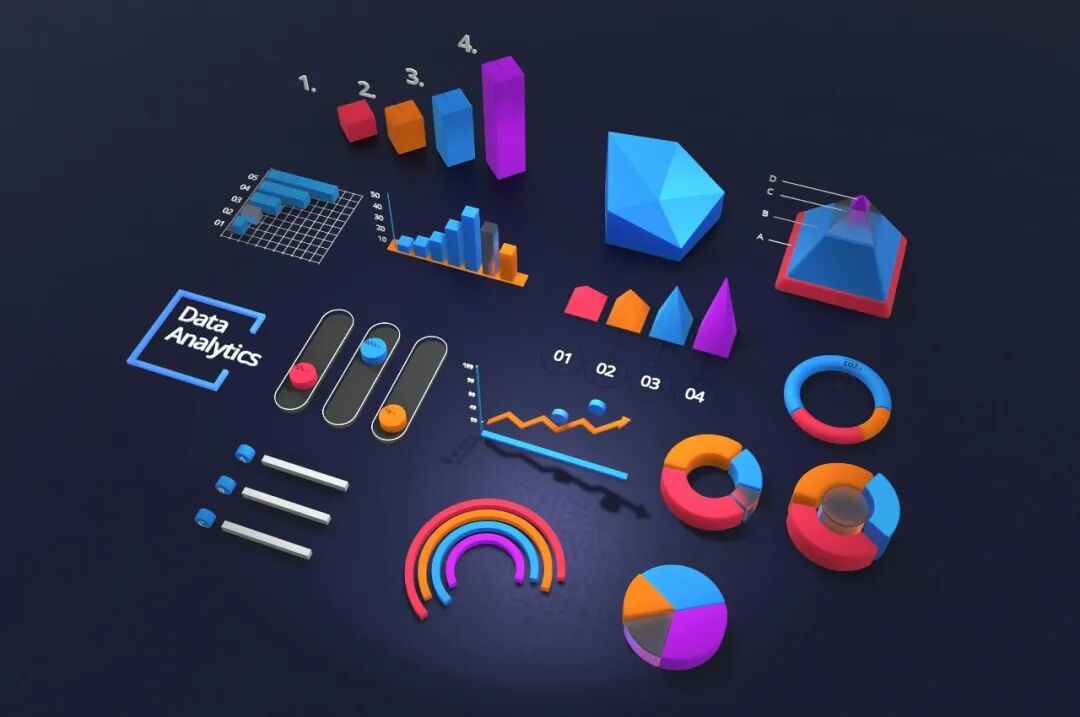Artificial intelligence data scientists can democratize AI and empower under-resourced departments.
Image source:Unsplash/Choong Deng Xian
Darko Matovski
Founder and CEO of causaLens
The rapid growth of data is outpacing the current pool of AI talent, presenting significant challenges for small organizations in effectively leveraging AI.
AI-powered data science agents can automate data processing and causal analysis, offering a promising solution to accelerate the adoption of AI and empower resource-constrained fields.
Human oversight is crucial for building trust in AI-driven decision-making, enabling AI-powered data science agents to become reliable, transparent, and accessible partners across industries.
By 2025, the world will generate 175 ZB of data annually. If China’s Great Wall were lined with 1-TB hard drives, the total volume of data produced would equal 1.5 times the length of the wall itself. Yet, this explosive growth in data hasn’t necessarily led to widespread progress.The exponential growth of data is far outpacing the linear growth of data science talent—this scarcity is driving up the cost of AI expertise to staggering, unaffordable levels.A stark divide is emerging: only large corporations and well-funded institutions can fully leverage artificial intelligence, while small businesses, nonprofits, and public-sector organizations are left behind. This growing gap threatens both economic competitiveness and our collective ability to tackle pressing global challenges.At the World Economic Forum Annual Meeting 2024 held in Davos, the Alliance for AI Governance highlighted inclusive AI as a top priority for 2025. Through my collaboration with the Alliance, one reality has become clear: we need groundbreaking solutions to ensure that everyone can benefit from the advantages of AI—and I believe we’ve already identified one.What if we could bridge the data gap by making cutting-edge AI innovations more accessible to everyone? Imagine a world where every organization, regardless of size or resources, could tap into the expertise of top-notch AI data scientists—at virtually no cost.Bridging the gap with an AI-powered data science agentAn AI-powered data science agent is a potential solution to the explosive challenges posed by today’s data deluge. It’s not just an analytical tool—it also marks a paradigm shift in how we tackle complex problems on a global scale.These agents automate the entire data-to-decision process, enabling human data scientists to oversee them, ensure governance, and validate insights—keeping trust intact. Below, I’ll provide a detailed overview of their operational framework.At the heart of its operation lies automated data processing—this is the most time-consuming aspect of data science. These agents intelligently connect to a variety of data sources, from databases to application programming interfaces (APIs) and IoT devices, automatically addressing data quality issues and preparing the data for analysis—a process that typically consumes 80% of a human data scientist’s time.Then, it can identify what makes the data valuable, uncovering meaningful patterns and relationships—patterns and relationships that might otherwise take human analysts weeks to discover.What sets AI data science agents apart is their ability to leverage a wide range of quantitative and advanced reasoning skills to analyze data. For instance, an AI agent can build causal models that capture the underlying cause-and-effect relationships in the data—and then use these models to predict the outcomes of future actions.This deeper level of understanding, combined with large language models' ability to interpret and explain complex patterns, enables these agents to communicate their findings in a manner that closely resembles human interaction.By combining sophisticated analytics with clear communication, these AI-powered data science agents enable organizations—previously unable to afford a data science team—to leverage cutting-edge artificial intelligence.This transformation has far-reaching implications for businesses, governments, and society—let’s explore this through two example use cases.1. Transforming Water Resource Management in Communities Lacking Adequate ServicesIn many impoverished communities, accessing clean water remains a significant challenge. While these communities have gathered valuable data about their water systems, they lack the resources to effectively leverage this information. A single data scientist’s salary could exceed the entire operating budget of the local water authority.An AI-powered data science agent can leverage existing data to transform water management in these communities: including records of water point status, usage patterns, basic sensor readings, and local weather data.This method is particularly effective because it leverages causal reasoning. Not only does it identify patterns, but it also uncovers why certain water supply points are more prone to failures than others. For instance, it might reveal that failures in a specific area are primarily driven by usage patterns rather than infrastructure aging, enabling more targeted and cost-effective interventions to be implemented.Its impact is immediate—and entirely practical. AI-powered data science agents can:- Predicting potential failures before they occur
- Implement preventive maintenance instead of costly emergency repairs.
- Optimize resource allocation based on actual needs
- Identifying high-risk areas facing water scarcity
Most importantly, these insights will be communicated in clear, actionable terms so that local teams can understand and trust them.2. Empowering Innovation in Small-Scale ManufacturingThe backbone of global manufacturing isn’t large factories—but rather the fiercely competitive, low-profit small and medium-sized manufacturers. While industry-leading companies have made strides in digital transformation, SMEs continue to face significant challenges due to financial constraints.Artificial intelligence-powered data science agents can transform manufacturing operations in the following ways:- Predict equipment failures and reduce costly downtime.
- Identify the root cause of the quality issue and provide precise adjustment recommendations.
- Optimize the production plan to enhance efficiency and minimize waste.
- Balance inventory levels to strengthen cash flow.
- Identify energy waste and recommend specific opportunities for savings.
True innovation lies in how these AI data scientists use manufacturing language to communicate, turning complex processes into something simple and easy to understand. Factory managers can simply ask questions like, "Why did we see more defects last week?" In response, they receive clear explanations linking specific production conditions to the outcomes—along with actionable, practical recommendations for improvement.With the help of AI-powered data scientists, small manufacturers can achieve the same level of operational complexity as large enterprises—without needing to make substantial investments in a dedicated data science team. This empowers them to build a more resilient manufacturing sector, enabling businesses of all sizes to innovate and thrive.Balancing Trust and AutomationArtificial intelligence data science agents have the potential to provide a level playing field for resource-rich organizations as well as those currently unable to afford data science expertise. However, realizing this vision requires more than just robust automation—it also demands trust.This trust is a vital pillar of our AI-driven future. While artificial intelligence may soon handle most analytical tasks, human intelligence will remain the critical backup. As AI-powered data science agents automate complex workflows, human experts will need to provide essential oversight and judgment—ensuring these systems stay reliable and trustworthy.The AI data science agent will leverage large language models to write and execute data science code, while their causal reasoning capabilities enable them to clearly explain their work.Business users can interact with these tools using natural language to uncover fundamental relationships in the data and gain insights into *why* things happen, not just *what* occurs. This approach—combining human oversight with interpretable AI—transforms them from "black boxes" into trusted partners.Our vision for the future is that every organization, regardless of size or resources, will be able to harness the power of data. AI-driven data science agents will work alongside human experts—not to replace their judgment, but to amplify their capabilities. This isn’t a distant dream; we’re already collaborating with leading companies to leverage AI data science agents in tackling challenges that go beyond the limits of human analytical capacity, while ensuring humans retain strategic oversight.As artificial intelligence continues to advance, its share of global analytical capabilities is steadily growing—yet human oversight will remain the cornerstone of trust. Striking the right balance between trust and automation will ensure that AI truly benefits everyone, driving innovation and progress across every sector of society.
The above content solely represents the author's personal views.This article is translated from the World Economic Forum's Agenda blog; the Chinese version is for reference purposes only.Feel free to share this in your WeChat Moments; please leave a comment below if you'd like to republish.
Editor: Wang Can
The World Economic Forum is an independent and neutral platform dedicated to bringing together diverse perspectives to discuss critical global, regional, and industry-specific issues.
Follow us on Weibo, WeChat Video Channels, Douyin, and Xiaohongshu!
"World Economic Forum"





